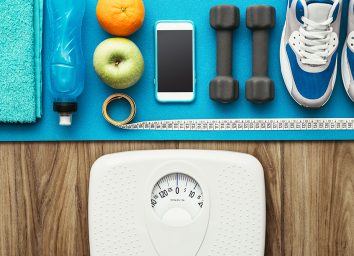9 Protein Myths You Should Stop Believing
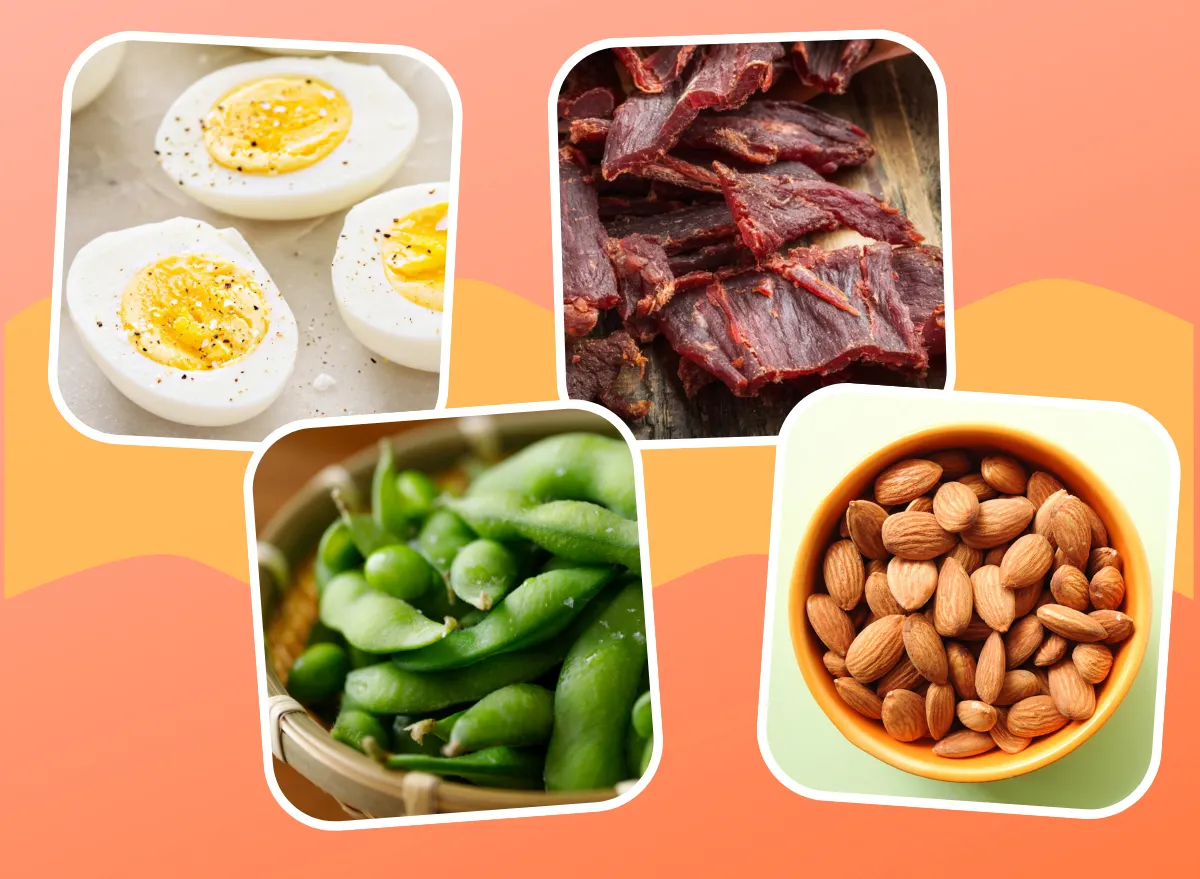
You don't have to be a bodybuilder to pay close attention to your protein intake. Even if you've never stepped foot into a gym or laced up a running shoe, this is a food group that belongs in your body. Did you know that it isn't just great for muscle mass, but for staying satiated and boosting metabolism as well? Scientific studies have shown these benefits, but if there's one thing we know about protein, it's that it gets people talking—but just because people are talking doesn't necessarily mean they're telling the truth.
In fact, there's so much false advice being thrown around in this department that we had to round up the most common culprits for you. Because if you're not actively looking out for these protein traps, you might end up widening your waist instead of slimming down.
We've got a lot of ground to cover—and a lot of myths to bust—but you should take a peek at the 29 Best-Ever Proteins for Weight Loss to get yourself even more familiar.
There's No Such Thing As Too Much Protein
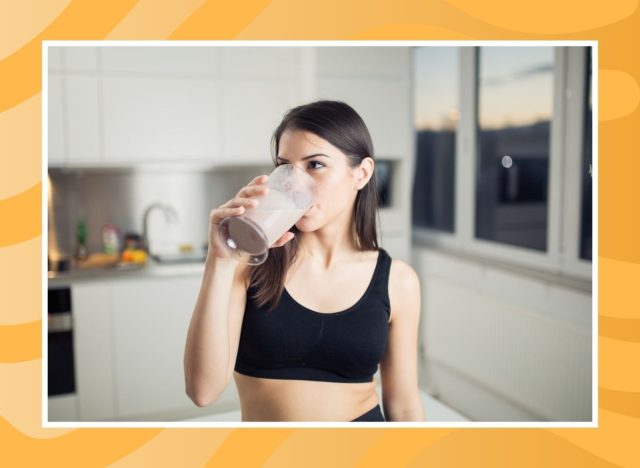
You've probably been told that there's not enough protein in your daily diet and you need more, more, more, but that's usually not the case for most people. Far from it, in fact. According to a study in the American Journal of Clinical Nutrition, adults between the ages of 19 and 30 eat roughly 100 grams of protein a day, which twice the recommended amount for someone eating a 2,000 calorie diet. But what happens when you overload like this? Cassie Bjork, RD, LD, says eating excessive protein could lead to excessive nitrogen your body can't excrete. "If you're a long-time high-protein dieter, you could be increasing your risk for kidney damage," she says. Maybe that's why researchers from Rovira I Virgili University found high-protein dieters to be 66 percent more at risk of dying than those eating less. So just be mindful next time you're making any of these 23 Best Protein Shake Recipes to make sure you're not leaping over your daily limit.
Powders Can Substitute Whole Sources Entirely

We love protein shakes for two reasons: they're a convenient choice to chug when leaving the gym, and the powder they're made of is easily absorbed by our bodies. But that being said, don't equate drinking a shake to cutting into a slab of steak. While powders are a great protein source, they shouldn't act as a substitute for whole food sources, both animal and plant alike. Not only does the variation of protein provide your body with different amino acid profiles, but consuming the whole food source will also provide your body with other essential micro and macronutrients. So don't make powders your primary source. Instead, make them a part of a more varied protein diet.
Your Body Can Digest A Lot In One Sitting
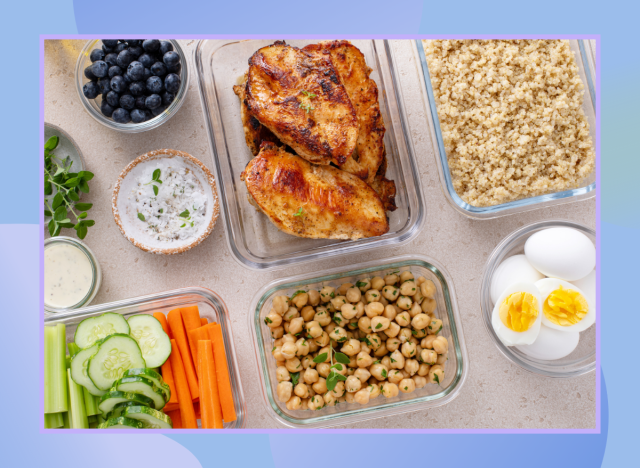
Everything in moderation—even protein. We've already gone into the possibility of eating too much in one day, but did you know you could eat too much in just one sitting? If you end up going overboard, your body won't actually digest the excess but will store it as fat instead. That's why Jim White, RD, ACSM, and owner of Jim White Fitness Nutrition Studios, recommends capping your intake at 30 grams each time you eat protein. So look at labels if you want to guarantee your protein-packed meal isn't backfiring on your body.
Everyone Should Eat The Same Amount

Your weight loss journey is not going to be the same as your neighbor's, your best friend's, or the person riding next to you on the bus. So why should you match up your protein consumption to theirs? While the base recommended daily amount is 56 grams for men and 46 for women, you need to take your weight into consideration before you follow that number blindly. According to White, there is a formula that can calculate exactly how much protein to eat a day for weight loss per each individual person. "It is recommended by the Academy of Nutrition and Diabetics to consume 1.2-1.7 grams per kilogram of body weight," he says. There are 0.45 kilograms in one pound, meaning a 150-pound person needs between 81 and 115 grams compared to a 180-pound person who needs 97-138 grams. Also, keep in mind that your ideal protein levels today aren't your ideal protein levels next month. As your body changes, your calculations will change along with it.
Whey-Based Protein Will Make You Fat
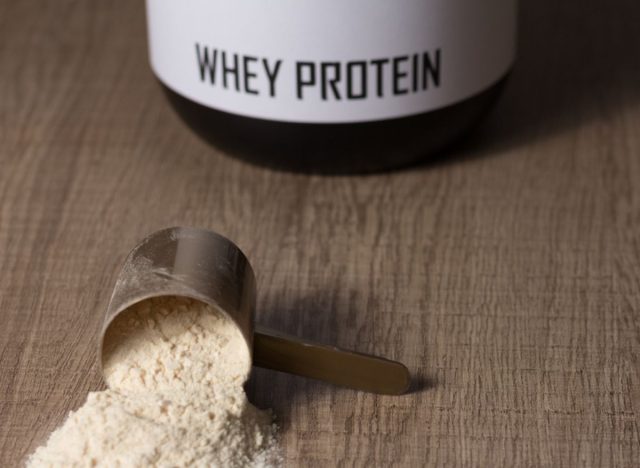
Will consuming whey-based protein lead to weight gain? Yes, it could—but only in the way that eating chicken and even salad can eventually lead to weight gain. Too much of anything can boost your calorie intake and lead to a larger number on the scale, so don't let the rumors scare you away from whey. According to a study in the Journal of the American College of Nutrition, using it to replace calories in your daily diet can lead to a body weight decrease of about 9 pounds on average, while exercising on top of that can lead to a lean body mass increase of about 5 pounds. So feel free to ignore the fuss as long as you're tracking your calorie count.
Vegans Need Complete Proteins
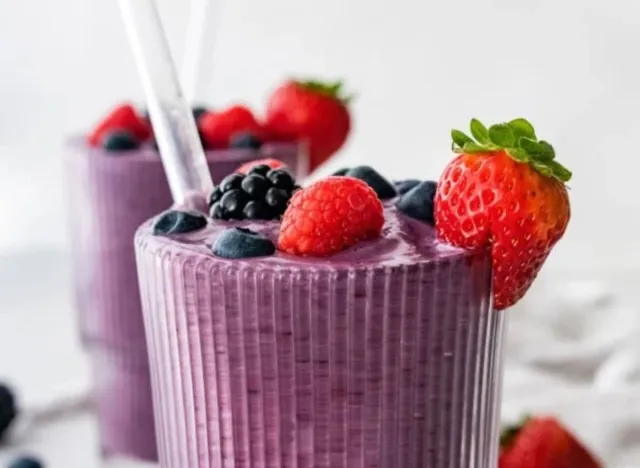
A complete protein is a protein source that contains all nine essential amino acids, but since that list includes things like beef, fish, and eggs, vegans end up missing out. Turns out, this isn't as big of a problem as you may have thought. Even a plant-based diet, as long as it's well-balanced, includes enough incomplete proteins—in foods like rice and beans, for example—to be combined and used as a complete protein. And you don't even have to eat them in the same sitting since your body stores amino acids for the entire day.
Increasing Protein Increases Muscle Mass

This myth is true if and only if you're supplementing your protein intake with trips to the gym. Your body does need the amino acids in protein sources to better repair or boost muscle mass, but it also needs exercise and strength training on top of that. If you're not working out and challenging your muscles, they won't need all the extra protein you're packing in. That's why researchers from Rice University recommend that those who don't exercise only eat about half as much protein as athletes.
You Can't Go Wrong With A Protein Bar
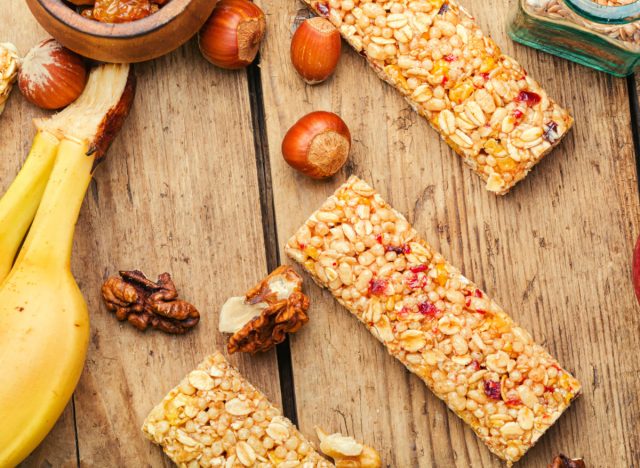
Sometimes it's actually easier to go wrong with a protein bar than to go right once you start paying attention to packaging. Take a closer look at a Caramel Nut Blast Balance Bar, for instance, and you'll find carrageenan in the ingredients list. According to Gina Hassick, RD, LDN, CDE, "Carrageenan can trigger an immune response that causes inflammation, gut irritation and lesions, and even cancer." But Balance Bar isn't the only company trying to sneak threatening things by you. Other packaged products include equally dangerous additives like caramel color and appetite-increasing artificial sweeteners. It's best to find something under 200 calories, low in sugar, and high in protein (obviously), but don't just add it to your daily diet. Use it to replace a meal or a snack, or just whip up your own protein shake instead with ingredients you can trust.
Protein Shakes Are Your Only Post-Workout Option

Speaking of shakes, you may love them, but you don't have to make them your one and only. Feel free to shop around for other options that can vary your intake while still boosting your muscle mass. According to the USDA, there are 8 grams of protein in a glass of chocolate milk, and there are also plenty of high-protein soups for abs just waiting for you to stock up at your local supermarket. Just make sure you follow White's advice and don't exceed 20-30 grams for your post-workout protein snack.

